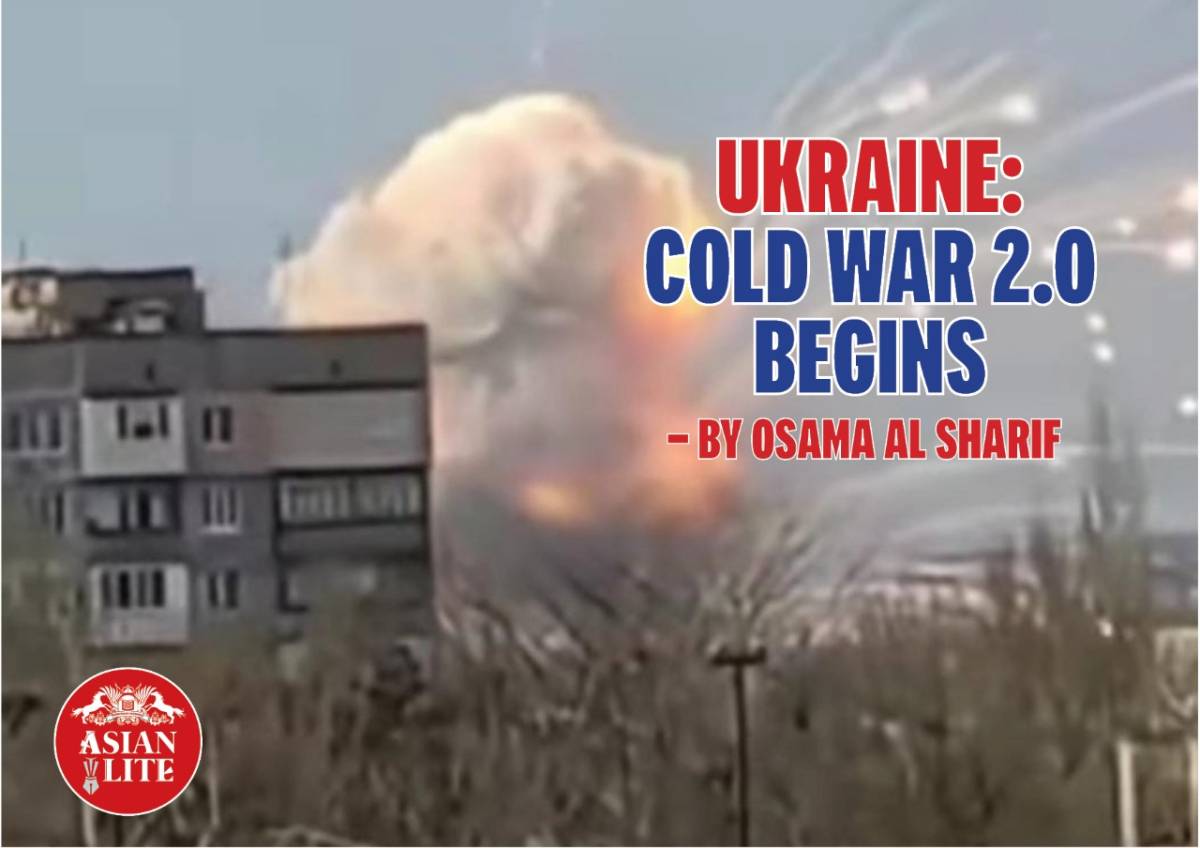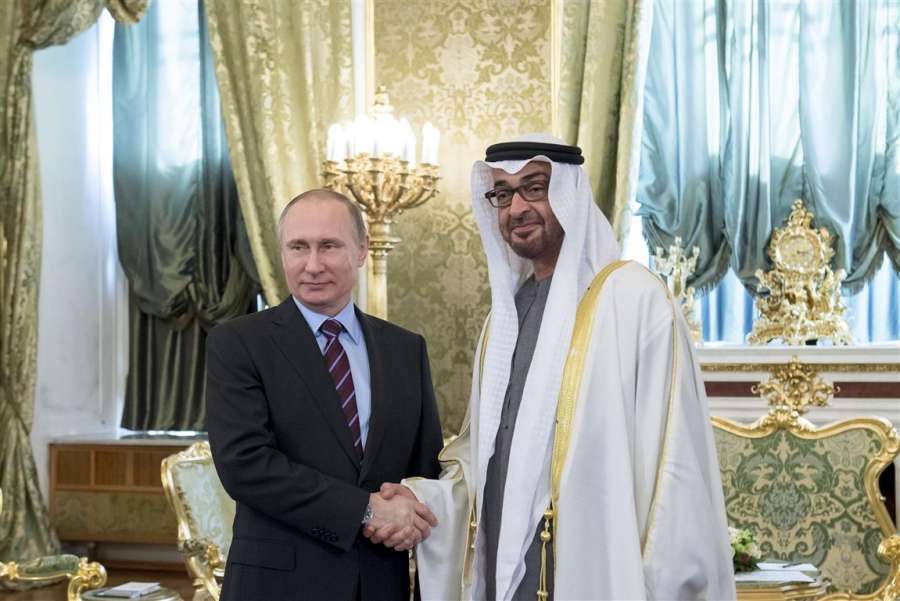For the region and beyond Ukraine war puts leaders before tough choices. A maverick Russian President Vladimir Putin had sent numerous signals that the Kremlin will not tolerate Ukraine joining NATO. That would put Western troops right on the Russian borders. The West had failed to provide the guarantees that Putin had asked for. And, without siding with one power against the other, we now find ourselves embroiled in a global crisis the kind of which we had not seen since the Cuban missile crisis of the 1960s …. Writes Osama Al Sharif
This is not World War Three, but it is the closest the world has gotten to since the dramatic collapse of the Soviet Union. Russia’s invasion of Ukraine has been in the offing for decades as NATO moved slowly towards the east recruiting former Warsaw members and installing nuclear warheads closer to Moscow. The geopolitical game of brinkmanship has been going on since the 1990s and the blame game had continued from the time of Boris Yeltsin who pointed the finger at the West for not honouring pledges made to Mikhail Gorbachev by the US that NATO will not encroach on Russia’s vital sphere of influence.
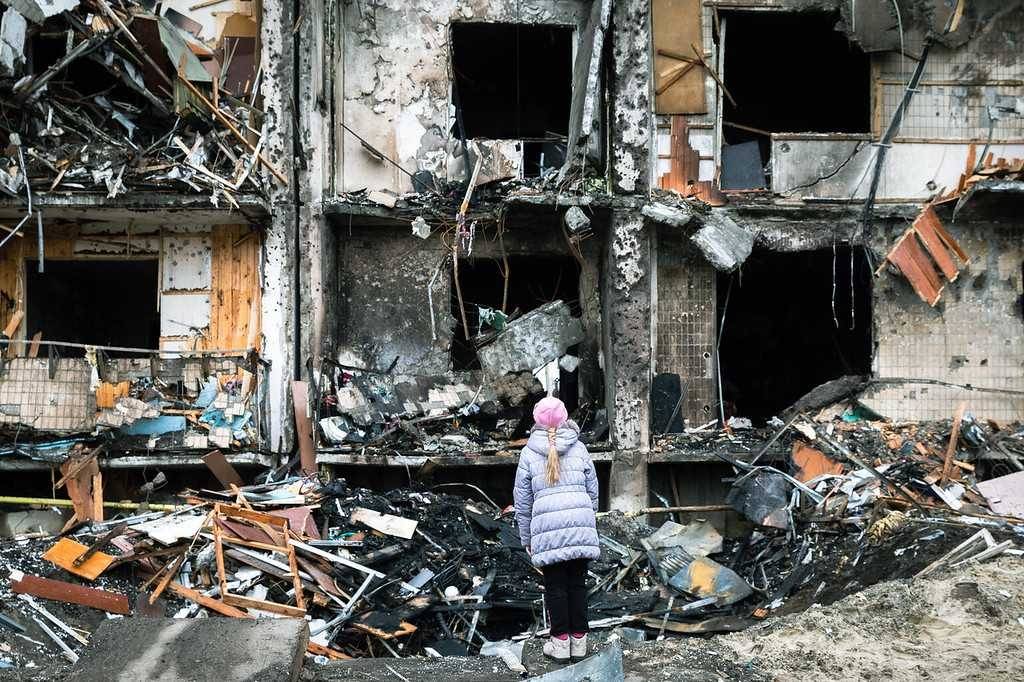
A maverick Russian President Vladimir Putin had sent numerous signals that the Kremlin will not tolerate Ukraine joining NATO. That would put Western troops right on the Russian borders. The West had failed to provide the guarantees that Putin had asked for. And, without siding with one power against the other, we now find ourselves embroiled in a global crisis the kind of which we had not seen since the Cuban missile crisis of the 1960s. Pundits will continue to engage in endless debates over who is really the evil party in this. But for the Middle East, in particular, and beyond the region’s leaders are polarized.
The US and the EU have imposed an unprecedented regime of sanctions on Russia over its invasion of Ukraine. The all-inclusive sanctions are really a brutal blockade aimed at suffocating the Russian economy. This is where some countries, close to the US, had to take a step back and reconsider their position carefully.
The UAE, a member of the Security Council, stunned its western allies by abstaining at two resolutions condemning the Russian invasion. India and China took the same position. The west was fuming. Jordan, Egypt and Israel as well took their time and issued diluted statements that did not mention Russia as the aggressor. Finally, under tremendous western pressure, the UAE, Jordan, Israel and Egypt voted for a General Assembly resolution that condemned the Russian invasion of Ukraine. India and even Iran abstained.
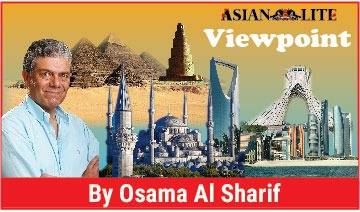
Qatar and the UAE refused to terminate their billion dollar investments in Russia—for now. The pressure will build up. India is coming under attack from American officials for failing to take sides.
While the Americans have less to lose—every country in the world will be affected by the western sanctions—the Europeans will be hard hit by the penalties. The Russian economy is already suffering. There is no way that energy markets will go back to normality any time soon. And that means that GCC countries will grapple with its effects as well. India, Pakistan and South Asian countries—all dependent on foreign supplies of oil and gas—will struggle as well. This open-ended crisis has already polarized the world.
Call it a Cold War 2.0 or the resetting of a new world order by other means, this showdown is not to the liking of regional leaders who have been focused on building new economic and political alliances in a fast-changing region. Pakistan wants Russian gas and India’s fast growing economy is becoming energy dependent.
And the geopolitics of the region is changing too. Israel is now an ally of at least two Gulf countries, while Moscow has two vital bases in Syria. The US is not shy of admitting that it is fed up with the Middle East and is now pivoting to the South East; much to Beijing’s anxiety.
And when it comes to economic giant China, it is not interested in warfare as much as slowly building vital global financial and economic networks through its Road and Belt initiative. As much as it now stands reluctantly with Russia it will not go as far as challenging the west and suffer economic penalties itself. But it knows that the US is watching every step it takes because in reality while Russia has issues with inter-European national security; one that it must eventually resolve, its own global agenda is completely different.
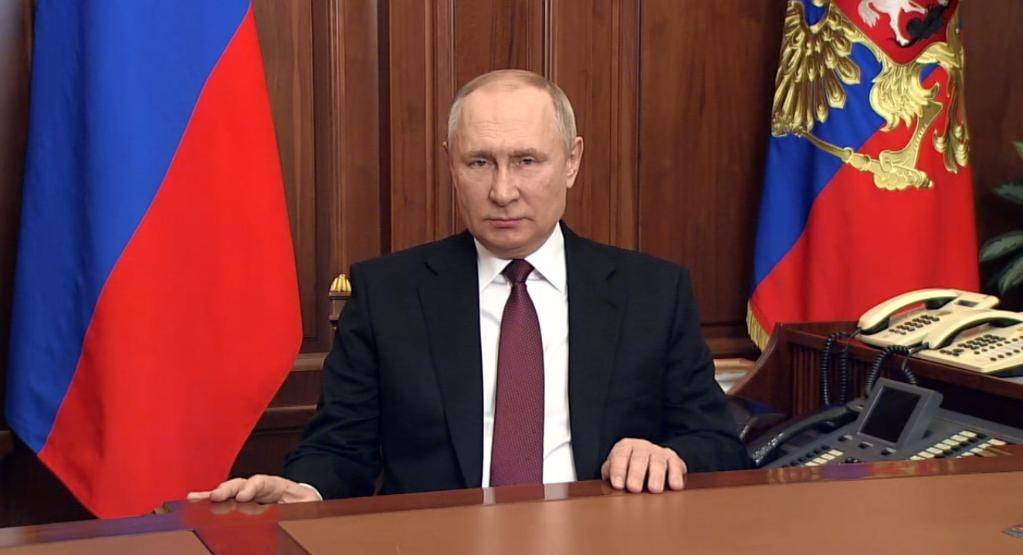
These facts are not hidden from the region’s leaders. India has built a close relationship with the US, especially under Donald Trump, but it has no interest in taking sides in what is really a geopolitical European crisis that could have been resolved diplomatically many years ago.
Along the same lines, Israel knows that antagonizing the Kremlin could have immediate effects over its ability to violate Syrian skies to hit Iran backed militias without Russian intervention on an almost daily basis. An injured Russia could still play havoc with regional security.
What is certain now is that Russia will at some point march into Kiyv and install a puppet regime. Then a long standoff will prevail with the Ukraine borders presenting themselves as a New Berlin Wall.
There is something else that irks the region’s leaders and that is the double standards and hypocrisy that dominates the west’s positions. The Russian invasion conjures up memories of the US-British illegal invasion of Iraq, NATO’s unilateral intervention in Libya and other examples where international law was trampled on.
The end game is open to all scenarios: A new alliance of countries that may shun the dollar and adopt a new crypto-currency to evade sanctions or even a new block of countries that are happy to do business with each other outside the western financial network. In all cases the war in Ukraine will change the world we have known since the 1990s and the region’s leaders are coming to grips with this new reality.
(Osama Al Sharif is a journalist and commentator based in Amman)
READ MORE: The Gulf and India: A robust partnership in the making
READ MORE: Politics of brinkmanship in Vienna

